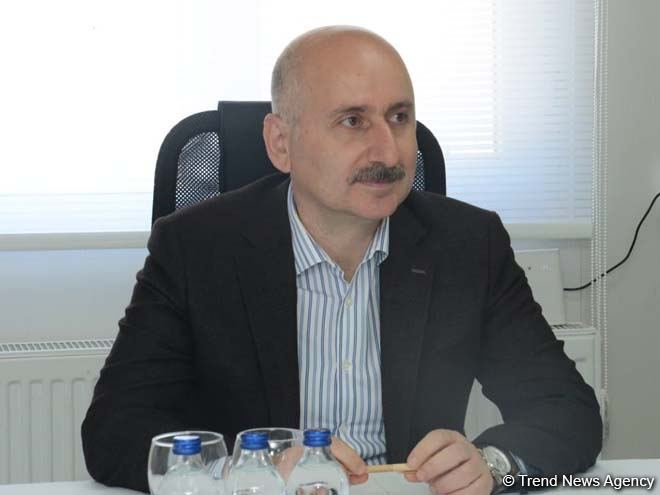Türkiye will invest in building railways in the next three decades, the country’s transportation minister has said, Trend reports citing Daily News.
“We have moved from a period where we invested 65 percent on highways to a period when we made 65 percent on railroads,” Adil Karaismailoglu said.
While the construction of 4,500 kilometers of railways is currently underway throughout Türkiye, it is aimed within this period to increase the total railway network from 13,000 to 29,000 kilometers, the minister noted.
The target is to increase the number of passengers carried on railways from 19.5 million to 270 million in the next 30 years, Karaismailoglu said.
“High-speed trains presently serve some 20,000 passengers a day. Once the number of services is increased, the passenger capacity will rise by 31 percent to more than 25,000 people,” he said earlier.
As part of the work under the 2053 Transport and Logistics Master Plan, the number of provinces connected to the high-speed train network will increase from eight to 52, he also said.
“Türkiye will be built with railways designed not only to carry passengers but also cargo. The products produced by the Turkish industry will be transported to the most critical ports of the country by railways. Today, 38 million tons of freight are transported by railways, which will increase to 448 million tons after 30 years,” Karaismailoglu said.
Railways in Türkiye accounted for 3 percent of all freight shipments in 2019, but their share is projected to increase above 11 percent and further up to 22 percent by 2053, according to the minister.
The amount of investments to be made in transportation to boost both cargo and passenger capacity is $197.9 billion, he said, stressing that it is expected to contribute $1 trillion to national income and $2 trillion to production, and to create employment for more than 27 million people.
The Turkish State Railways (TCDD) network currently spans a total of 13,022 kilometers (8,000 miles) in line length, up from 12,608 kilometers (7,800 miles) in 2017.
Sea transport, air transport and communications will also take their shares from those investments, according to the minister.






